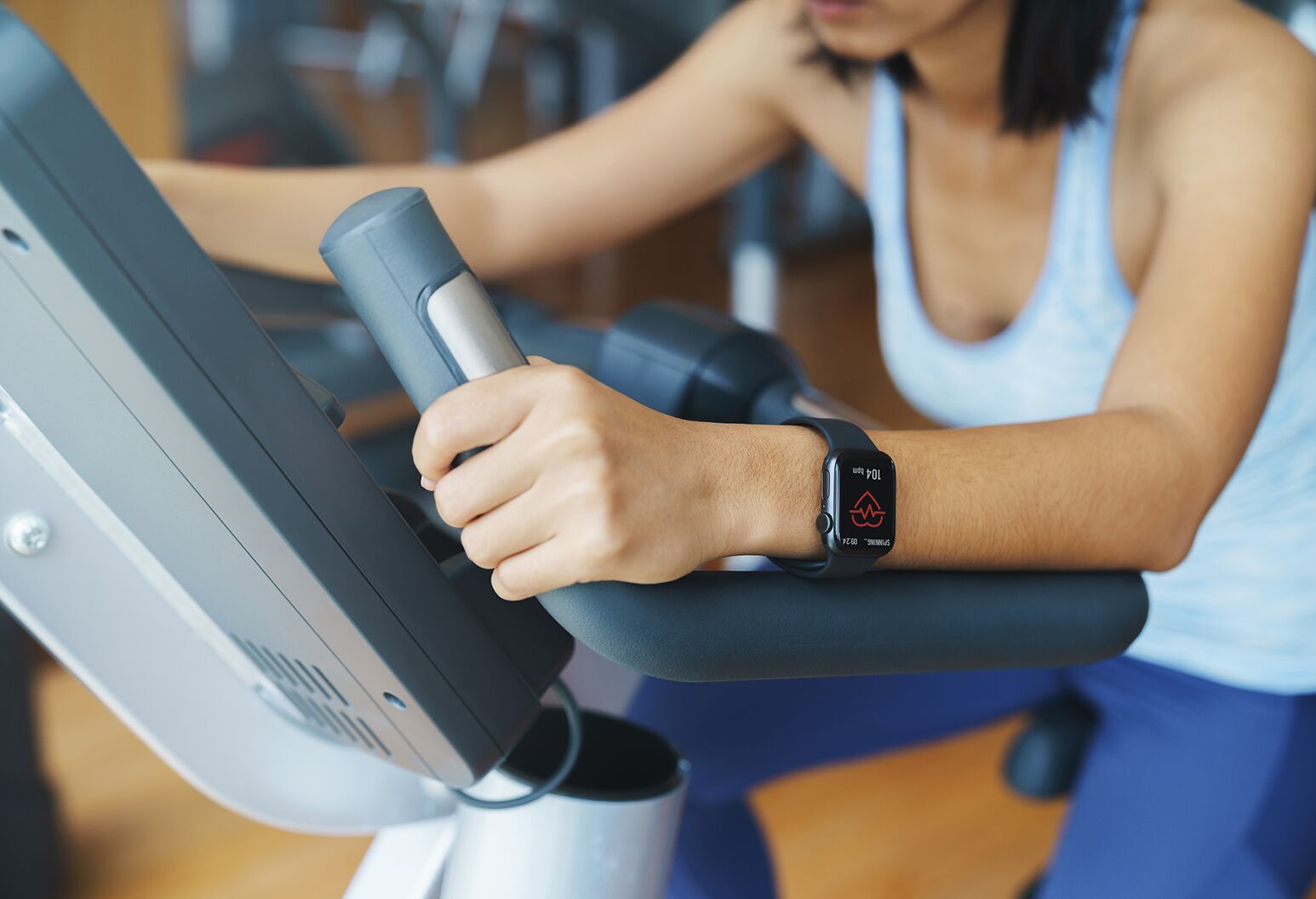heart health
The Biggest Heart-Healthy Diet Myths

Learn the best ways to restore your heart health after recovering from a case of COVID-19, from exercise to monitoring and medical care.
4 min read
Though the news headlines and our daily conversations have been dominated by COVID-19 during the last few years—perhaps more than many of us would prefer to be the case—the fact remains that there is still a lot we don’t know about what happens inside the body, and how to recover and strengthen our systems as they bounce back.
But while COVID is primarily a respiratory virus, of course, research has found that the heart is not immune from the effects of the virus. In fact, one 2022 study, published in Nature Medicine, found that “individuals with COVID are at increased risk of incident cardiovascular disease spanning several categories, including cerebrovascular disorders, dysrhythmias, ischemic and non-ischemic heart disease, pericarditis, myocarditis, heart failure, and thromboembolic disease.”
So, how can we protect our hearts against the virus, and what can we do for better heart health, going forward after COVID?
“The first thing is to remember that this is rare, in terms of the bigger picture, and it’s very important to vaccinate,” says Benjamin James Hirsh, MD, a Northwell Health physician specializing in cardiology and internal medicine. “It’s also important to remember that heart trouble is of particular concern for those with other risks, like obesity.”
To get a full picture of the risks and effects, though, it helps to first understand what can happen to the heart during COVID. In a nutshell, the virus causes inflammation in the lungs, which can then limit the amount of oxygen that reaches the bloodstream—thus forcing the heart to pump harder in order to move blood throughout the body. This lack of oxygen can lead to cell death, and the heart’s extra work can cause the organ to deteriorate or fail.
By providing your email address, you agree to receive email communication from The Well.
It’s also been shown that COVID can cause myocarditis (inflammation of the heart muscle tissue itself) and damage to the inner surfaces of veins and arteries, as well as blood clots. Cardiomyopathy is another concern. This occurs when the body is under stress and releases chemicals that can hurt the heart.
And then there is the cytokine storm, which sounds terrible—because it is. Essentially, the body’s immune system attacks the virus so substantially that healthy tissues get destroyed in the process. This can cause life-threatening ventricular arrhythmias.
All of this said, Hirsh says there are steps than can be taken to care for your heart after a bout with COVID. Testing—bloodwork, electrocardiograms, echocardiograms, magnetic resonance imaging (MRI), and exercise stress tests—can help determine whether the heart is working well after recovering from the virus.
And although exercise remains important for heart health, the doctor cautions that even avid exercisers should ease back into activity after testing positive.
“Even with the less-robust strains we’re seeing out there, we continue to see long COVID,” Hirsh says. “And long COVID has the potential to disrupt people’s ability to exercise and do activities like they used to. It reduces their endurance and exercise capacity.” This, he explains, is because the virus works by affecting the autonomic nervous system, which controls the way your heart responds to exertion. “So when you need the heart rate to go up it goes up too much or not enough. And when people don’t want it to go up, it will go up anyway, causing palpitations.”
Because of this, he says, the key is to create routines.
“The heart likes regularity,” Hirsh adds. “So you need to make a routine of going to bed at the same time, waking up at the same time, eating, and exercising. And even if the exercising is emotionally difficult because you can’t do what you used to be able to, you have to keep trying. I tell my patients that if they can only go two minutes, do that. Don’t push yourself so hard. You’re reconditioning your nervous system, and that will ultimately cause your heart to respond appropriately to your physiological needs.”
The process, he says, can take as much as three months or more, depending on the patient and the severity of the case.
“It’s also important to drink lots of fluid,” he says. “If you’re dehydrated, that autonomic nervous system gets activated again.”
Further, he also recommends cutting down on stress.
“Try meditation,” Hirsh says. “Find ways like that to reduce stress. All of this should help you get stronger, help you recover, and help protect your heart.”
The Well is Northwell Health’s commitment to the future of health care. In this time of information overabundance, much of which is inaccurate, unhelpful, or even difficult to understand, Northwell Health is on a mission to make a difference as an honest, trusted, and caring partner. The site connects with consumers to provide them with personalized content that reduces their stress, makes them laugh, and ultimately feel more confident and capable on their healthcare journey.